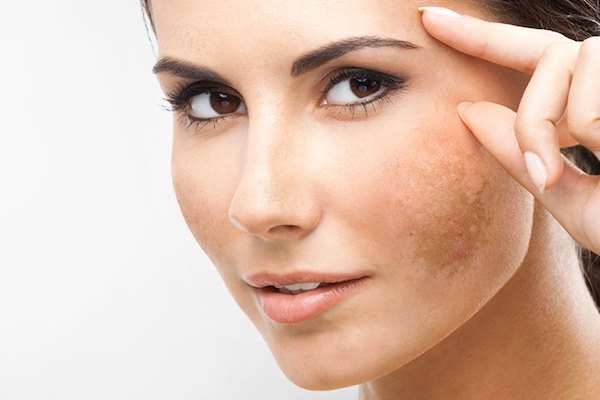To the naked eye, and to the typical beauty consumer, there may not seem to be a difference between dark spots, or hyperpigmentation, and melasma. Many of us may not have even heard these terms before! However, though these skin spots are similar in appearance, their underlying conditions and treatments do vary in nature.
Hyperpigmentation
Hyperpigmentation may appear as different-sized areas or patches of skin that are a different, often darker, colour than surrounding skin. It is a catch-all term for spots caused by acne, sun exposure, freckles, liver spots, and more. While most of these conditions are harmless and easily treatable, hyperpigmentation caused by sun exposure can increase the risk of skin cancer. In addition, many individuals may simply want to get rid of them for aesthetic purposes (though this is not necessary!).
Melasma
Melasma is a type of hyperpigmentation that exposure to the sun and/or hormone imbalances may cause. It occurs when melanocytes, cells that produce melanin, are more active than usual. This occurs more frequently in women, and in people of colour because these cells are naturally more active. Since hormonal changes can trigger melasma; pregnancy and birth control pills may activate these cells. Melasma is also most commonly found on the face; eyes, nose, cheeks. It is also common on the shoulders and ears which are areas of the body most exposed to sunlight.
Prevention of Dark Spots and Melasma
Before we talk about treatment, let’s take a look at prevention. The easiest way to prevent hyperpigmentation and dark spots from occurring is to use SPF products whenever you anticipate sun exposure. This blocks harmful UV rays from penetrating the skin and causing potentially dangerous dark spots. Also, if you notice an unusual dark spot, speak to a dermatologist that can safely identify and diagnose it.
Treatment of Dark Spots and Melasma
In terms of treatment, sometimes these spots fade on their own with time. But if this is not the case, over-the-counter products containing ingredients such as hydroquinone, tretinoin and corticosteroids, azelaic acid, kojic acid may do the trick. There are also cosmetic procedures like chemical peels, microdermabrasion, dermabrasion, laser treatment, or IPL that can effectively reduce the appearance of hyperpigmentation and melasma.
Written by: Daphna Roytblat


